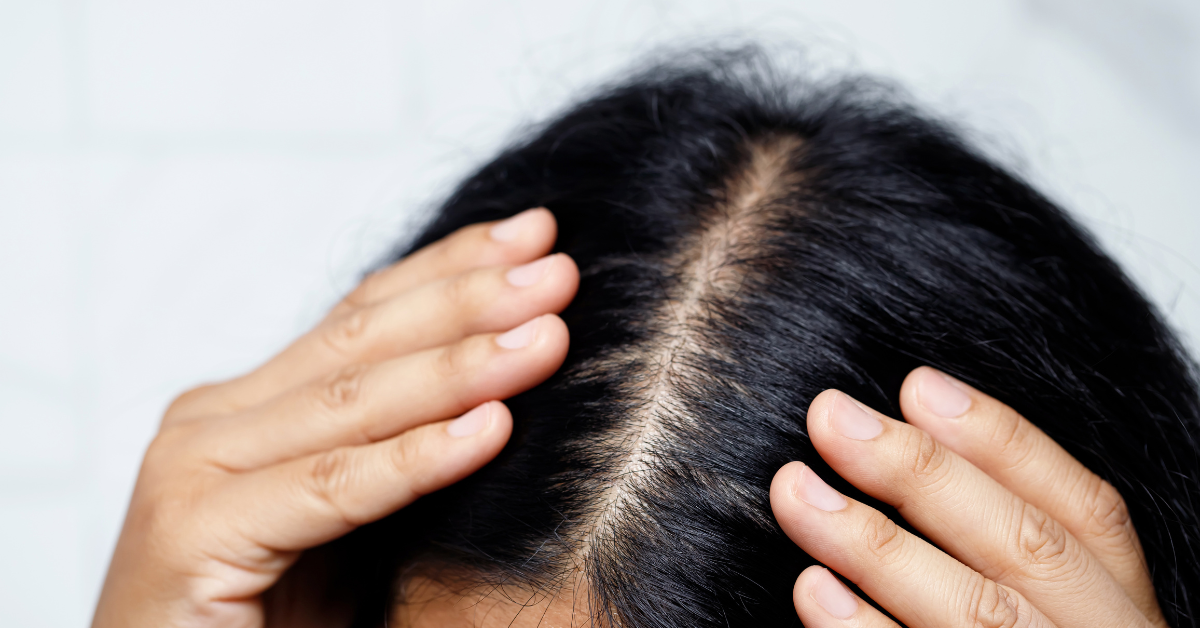
Parenting, Hair Loss and Confidence: Finding Yourself Again While Raising Others

*Collaborative Post
When you become a parent, your entire world shifts. Your priorities change, your schedule changes, and, more often than not, so does your appearance. Between sleepless nights, stress, hormonal shifts, and little time for self-care, it’s not uncommon for parents to look in the mirror one day and realise that they no longer recognise the person staring back.
One of the most common, yet least talked-about changes, is hair loss. And while it might seem like a small thing compared to the challenges of raising children, its emotional impact can be profound. Because hair isn’t just about vanity, it’s about identity.
Why Parents Experience Hair Loss
Hair loss after becoming a parent is surprisingly common — for both mothers and fathers — though it tends to happen for different reasons.
For Mothers
Postpartum hair loss typically strikes around three to six months after childbirth. During pregnancy, high oestrogen levels keep hair in its growth phase, making it look thicker and fuller.
After giving birth, those hormone levels drop suddenly, causing more strands to shed at once — a condition known as telogen effluvium.
While this type of hair loss is usually temporary, it can still be distressing. Seeing clumps of hair in the shower or a widening part in the mirror can feel like losing a piece of your pre-baby self.
For Fathers
For men, parenthood can accelerate hair loss indirectly. Increased stress, lack of sleep, and hormonal fluctuations can trigger or worsen male pattern baldness, especially in men predisposed to it. Many new dads also report that their usual self-care routines — diet, exercise, and grooming — slip during early parenthood, compounding the problem.
“Stress and hormonal changes can amplify genetic hair loss,” explains Dr Roshan Vara, Co-Founder and Hair Transplant Surgeon at The Treatment Rooms London.
“Parenthood is a beautiful, yet demanding season of life — and the physical signs of that stress often show up first in our hair and skin.”
The Emotional Impact: Losing More Than Hair
Hair loss affects more than appearance; it affects how people see themselves. Parents often describe it as a “double loss”, losing hair and, in some ways, losing the version of themselves they used to know.
That loss of confidence can creep into daily life. You might start avoiding photos with your children, feeling uneasy in social situations, or spending extra time trying to disguise thinning areas. For many, it’s not about vanity at all — it’s about alignment.
“So much of our identity is tied to how we see ourselves,” says Dr Dilan Fernando, Co-Founder at The Treatment Rooms London. “When hair loss changes that reflection, it can subtly affect confidence, self-esteem, and even how people show up as parents or partners. Restoring that balance can be incredibly empowering.”
Breaking the Silence: Normalising the Conversation
In a culture that often celebrates the sacrifices of parenting but not the toll it takes, few parents talk about hair loss openly.
Yet behind closed doors, it’s one of the most common self-image struggles new parents face.
By normalising the conversation, particularly among fathers, it becomes easier to address both the emotional and physical sides of it.
Sharing stories helps parents realise they’re not alone, and that real solutions exist beyond quick fixes or temporary concealers, including professional hair loss treatment options that offer long-term support.
Modern Hair Restoration: Subtle, Natural, and Empowering
Today’s hair restoration treatments are more advanced — and more natural-looking — than ever before. Procedures like FUE (Follicular Unit Extraction) and PRP (Platelet-Rich Plasma) Therapy offer subtle, effective ways to restore lost density and redefine hairlines without obvious signs of surgery.
- FUE Hair Transplant: A minimally invasive method that relocates your own hair follicles to thinning areas, following the natural growth pattern.
- PRP Therapy: Uses your body’s own growth factors to stimulate dormant follicles and improve hair health.
- Scalp Health Plans: Customised care for postpartum or stress-related shedding.
The focus isn’t just on restoring hair — it’s on restoring confidence.
“We’ve seen parents who come in saying, ‘I just want to feel like myself again,’” says Dr Vara. “That’s when you realise this isn’t just about appearance — it’s about identity, resilience, and self-worth.”
Self-Care Isn’t Selfish — It’s Essential
Parenting often means putting yourself last. But self-care — including taking action on something that affects your confidence — isn’t selfish; it’s sustainable. When parents feel good about themselves, they show up more fully in every other part of life.
Something as personal as addressing hair loss can ripple outward: improving mood, energy, and even relationships. It’s not about perfection — it’s about alignment between how you feel and how you appear.
Small steps can make a big difference:
- Prioritise rest and nutrition for overall hair health.
- Manage stress through mindfulness or gentle exercise.
- Speak to a hair restoration specialist early to explore non-surgical options before loss progresses.
Seeing Yourself Again
Many parents describe the moment they look in the mirror after treatment as a return — a moment of recognition. They see not a different person, but a familiar one. Someone who’s weathered change, carried responsibility, and found strength — yet still values feeling confident in their own skin.
Hair restoration isn’t about vanity. It’s about visibility, allowing parents to see themselves clearly again, and to step back into the world with renewed confidence.
Final Thoughts
Parenting transforms us, body, mind, and heart. Some of those transformations are beautiful, others are challenging, but all of them are deeply human. Hair loss is one of those experiences that can quietly chip away at confidence, yet with the right care and expert guidance, it can also be one of the easiest to reverse.
*This is a collaborative post. For further information please refer to my disclosure page.




